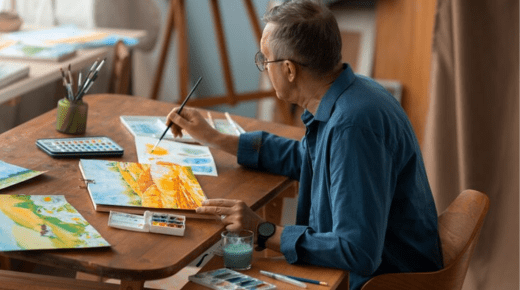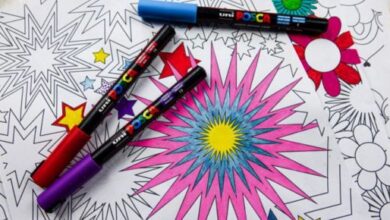How to Explore Artistic Techniques and Styles

Artistic expression is important because it is fulfilling and fun to engage in for one to be creative and come up with his or her own style. No matter whether you are an art beginner or just wish to learn more about various types of art, there are multiple methods to get involved in the art world.
In this article, where we will explore effective methods of learning various techniques and types of art, starting from the tips for visiting art galleries up to the tips for choosing materials.
Including these methods in your art engagement will help you improve your skills, expand your view of the art world, and look for inspiration in the variety of ideas and approaches.
Visiting Painting Exhibitions
Art gallery are also among the favorite places to visit in order to get acquainted with various techniques and art styles. The galleries present paintings, sculptures, installations, assemblages, and other forms of two- and three dimensional art.
Spend time scrutinizing the pieces of art that are on display and focusing on the methods that the artists have employed as well as the general appeal of the works. Some of the galleries also organize a guided tour or artist’s talk, which can be quite insightful and informative about the creation of the artwork and the journey of the artist.
Enrolling in Paint Classes or Workshops
Taking or attending art classes or workshops is another perfect way to learn techniques and styles of art. Regardless of whether you are a complete novice in art or have been doing it for years, it is always useful to take some formal lessons to develop new techniques, try out other media, and get feedback from other people, including teachers and fellow students.
Art classes include familiar topics such as drawing, painting, sculpture, printmaking, and digital art, where one can experiment with different methodologies guided by art professionals.
Experimenting with Different Mediums
Switching between different types of art is quite beneficial, as it is the only way for the artist to find out which medium suits him best. Whether you are more into the classical types of media such as oil paint and charcoal or into the new media like digital art and collage, being versatile in terms of media usually inspires more ideas and more opportunities.
Take some time and try out various mediums and techniques without any pressure or rigor, as this is important for trial and error.
History and Criticism
Art history and criticism courses also help one understand the background of different kinds of art and the development of techniques and art forms over different eras. Discover the complex history of art, focusing on famous artists and creative movements from different cultures.
When you are exposed to the great artworks of the past and try to examine them as products of a particular culture, social setting, and political climate, you can enhance your grasp of the artistic processes, methodologies, and ideas.
Networking with Other Artists
Sharing ideas, receiving critical feedback, and undertaking projects with other artists is beneficial because of networking. Get involved with artists in groups, attend their meetings, or get online forums and social media pages for artists so that they can communicate with other artists around them and know their experiences and ideas.
